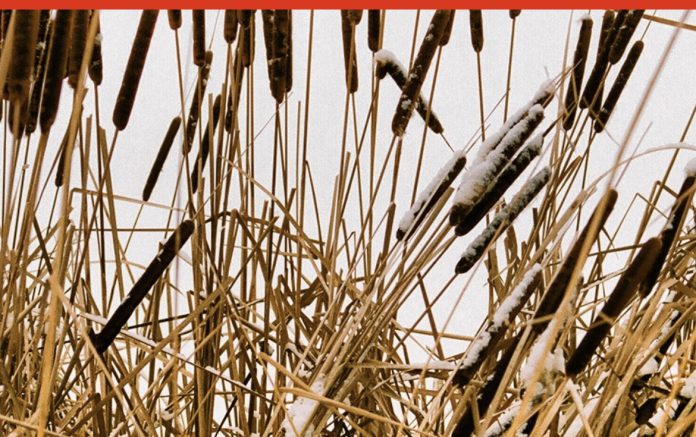The Wildlife Trust for Lancashire, Manchester and North Merseyside, Saltyco® and Peel L&P have announced plans to use new funding to enable bulrushes to be grown near Salford. The fluffy seed heads being turned into a revolutionary new textile to fill padded jackets.
Bulrushes can often be seen growing wild along pond edges and other areas of waterlogged ground. With their tall fibrous stalks and fluffy dark brown seed heads they are one of our most recognisable plants – but could bulrushes also make sustainable filling for padded jackets and eco-friendly building materials, whilst also fighting climate change and nature loss, and helping support our farming communities?
With nearly £400,000 funding from the Government’s Paludiculture Exploration Fund, administered by Natural England, a new project will see bulrushes, also known as reedmace or typha, be developed into a climate friendly crop, grown on restored carbon capturing peatlands. The seed heads of the bulrushes will be used to create BioPuff®, a sustainable and eco-friendly replacement for the use of goose feather down in padded jackets, developed by emerging materials science company, Saltyco®.
Julian Ellis-Brown, Co-founder and CEO at Saltyco®, commented:
“This project holds paramount significance, not only in the scaling of BioPuff®, but also in the establishment of an agricultural archetype that can facilitate both the expansion of peatland restoration and the creation of healthier textiles for the fashion industry.”
The bulrush crop will be trialled on a five hectare area of lowland peatland in Greater Manchester which was drained and converted to agriculture over 50 years ago, a process which can contribute to increased greenhouse gases in the atmosphere.
However, announced plans to re-wet these peatland areas will dramatically reduce greenhouse gas emissions – in some cases by nearly 90 per cent in just one year.
By 2050 re-wetting this site alone could save 2,822 tonnes CO2 equivalent – the same as over 7.2 million miles driven by an average car.
Re-wet agricultural peatlands can then be used to grow crops which will thrive in these wetter conditions – and bulrushes are just one of these. Lead partner in the project, The Wildlife Trust for Lancashire, Manchester and North Merseyside, is already trialling growing celery and blueberries on a nearby site.
The bulrush trial is also ripe for growth, as Saltyco® estimate that a further 100 hectares of bulrush will be required to meet BioPuff ® demand, having the potential to save 56,448 tonnes CO2 equivalent – the same as the annual electricity use of nearly 11,000 homes.
Mike Longden, Senior Peatlands Project Officer for the Wildlife Trust for Lancashire, Manchester and North Merseyside, said:
“This project is really exciting, paludiculture or wetter farming, could be the future for so many of our drained agricultural peatlands, not only protecting the carbon in the peat and reducing greenhouse gas emissions, but also providing an income for the farmers who need to make a living from the land.”
The field has been worked for over 35 years by a tenant farmer but with decreasing yields for conventional crops such as potatoes, wheat, barley and rapeseed, hes looking for new, more sustainable farming methods. Once initial work has been completed to re-wet the field, existing farm machinery will be used or modified to work with the wetter ground conditions.
The land for the trial is owned by Peel L&P, a family-run regeneration company in the area who are looking to develop a sustainable future vision for their peatlands.







